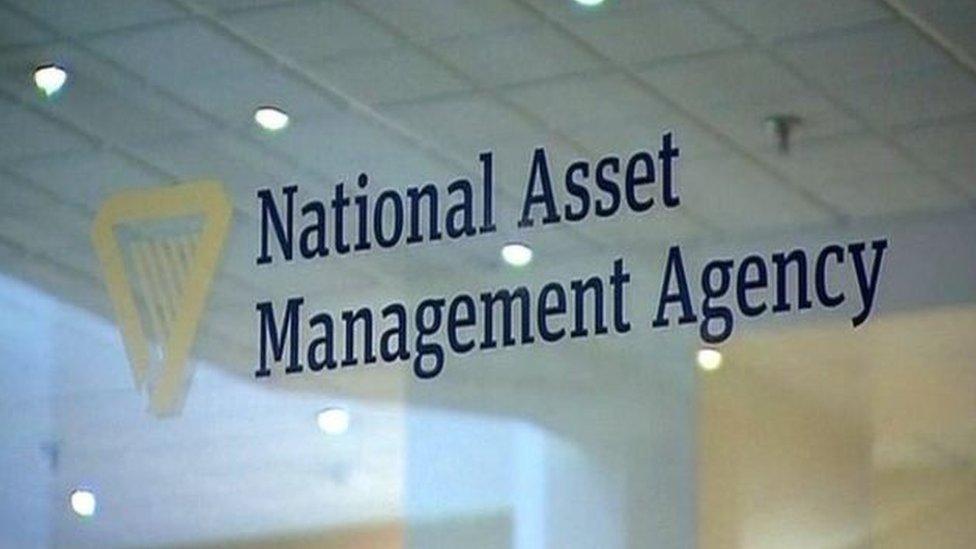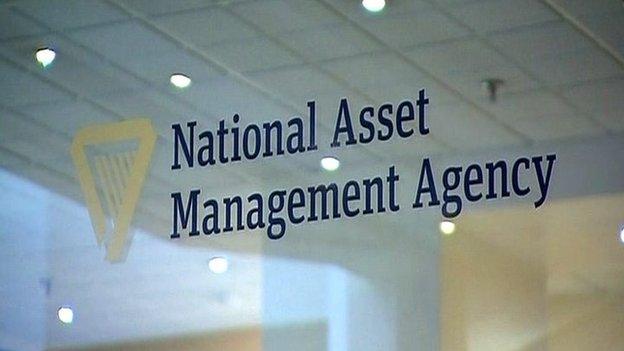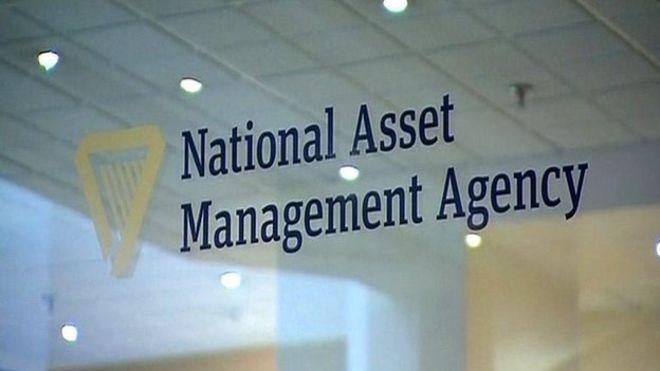Nama NI loans sale: Stormont inquiry recommends tougher rules for public appointments
- Published

The Stormont finance committee is investigating the £1.2bn sale of Nama assets to US investment firm Cerberus
A Stormont inquiry into the sale of Nama's (National Asset Management Agency) Northern Ireland property loans has recommended tougher rules for public appointments.
The finance committee is investigating the £1.2bn sale of Nama assets to US investment firm Cerberus.
Much of the inquiry has focused on the role of Nama adviser Frank Cushnahan.
He was nominated for that post by the Democratic Unionist Party (DUP).
The inquiry said that "robust systems" are needed to identify "financial or other interests" of nominees to similar posts.
It also recommends that the Stormont Executive set out clear "principles and practices" to be followed by ministers when making such nominations.
Timeline of Nama's NI property deal
The inquiry heard evidence that Mr Cushnahan had shareholdings in companies that had Nama loans.
He has previously stated he gave up those shareholdings in 2009 but the change had not been registered with Companies House.
A DUP adviser told the inquiry that he assumed that Mr Cushnahan had clients who would benefit from "being freed up from Nama".
The former First Minister Peter Robinson told the inquiry Mr Cushnahan had introduced him to a company, Pimco, which was interested in buying the Northern Ireland portfolio.
Nama has said it was not told about this meeting which happened in May 2013.
Mr Cushnahan resigned as a Nama adviser in November 2013 to work for Pimco.
He was in line to receive a £5m fee if Pimco's bid for the portfolio had been successful, the Irish Parliament has been told.

Frank Cushnahan resigned as a Nama adviser in November 2013 to work for Pimco
The bid collapsed in March 2014, when Nama learned of Mr Cushnahan's role.
The inquiry said that its evidence to date suggests that ministers and senior officials had "insufficient professional advice" to fully assess the strategic considerations in relation to Nama's operations.
'Oral evidence'
It recommends that the executive takes steps to ensure that "independent, expert advice" is available when ministers are taking a policy position on matters which are of systemic importance to the economy.
The inquiry is also critical of Nama's approach to its work.
The agency has not given oral evidence, saying that it accounts for its activities before the Irish Parliament.
The inquiry said the refusal of Nama to attend an oral evidence session had been "particularly unhelpful".
It also "regrets" that the Irish Finance Minister Michael Noonan did not encourage Nama to attend.
It concludes that from evidence to date, it is concerned that the sales process could be seen as "having caused reputational damage to the Department of Finance, the Executive, the Irish government and Nama".
- Published3 March 2016

- Published29 February 2016

- Published14 September 2016

- Published24 September 2015
